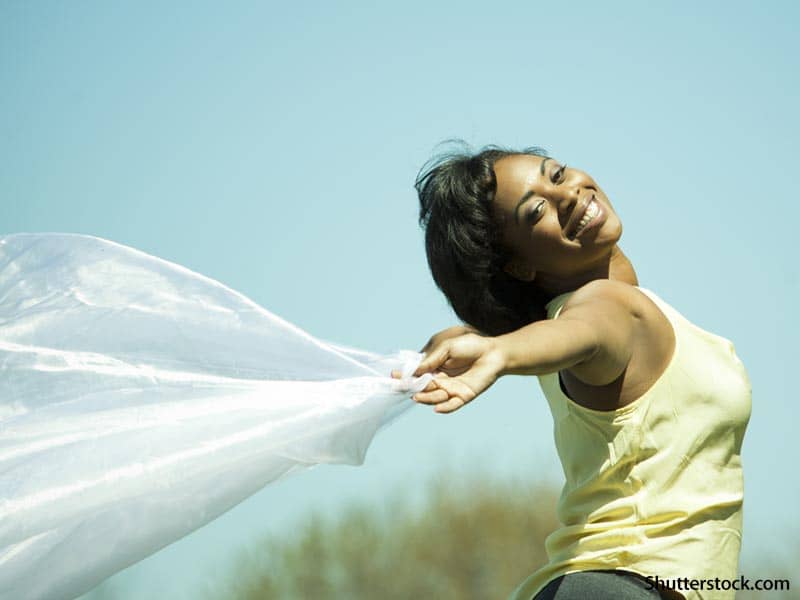
When someone hurts you, you are presented with a choice. You can give in to the emotional need for revenge, or you can practice kindness.
We’re going to explore why it is vital that you practice kindness every time.
When we decide that someone is our enemy, we sever our emotional attachments to them as people. They are an enemy, not a human any longer—this extra degree of separation means that they are easier to hate, easier to hurt, and, above all, easier to be unkind towards on a daily basis.
Anyone can be made an enemy. It can be a family member, a co-worker, a friend, or a stranger. We can even deceive ourselves into thinking our unkind actions are justice. And because enemy begets enemy, and unkindness begets unkindness, this spreads like a disease. Entire groups of people dehumanize entire other groups, and so feel little or nothing when they hurt one another.
And now, as our world is becoming a storm of strife the likes of which many of us haven’t seen in our lifetimes, it is more important than ever that we choose kindness—that we choose to be the lighthouse in that storm, guiding others back toward a better way of life.
But you’ve heard this message before—calls for kindness are coming from every corner, and there is no shortage of guides to show you how to be kinder. Let’s go beyond the how, though, and get into the why. Why should you be kind? What does being kind actually do?
Let’s take a look at the answers to these important questions, and find out the importance of being the lighthouse to a stormy world.
Kindness Stops the Cycle of Vengeance
Archbiship Desmond TuTu fought against apartheid, the often-violent segregation and expulsion of black South Africans. This was a system that caused immeasurable suffering, death, and displacement. It was also powerful, backed by the government, itself.
Despite all of this, Archbishop Tutu successfully fought it through nothing more than the power of kindness.
Tutu’s opposition to apartheid was intense and outspoken, yet he didn’t wield his considerable influence as the spiritual leader of Cape Town to incite violent uprisings. Instead, he brought reconciliation through talk, peaceful marches, and forgiveness.
When the systems supporting apartheid collapsed, he encouraged his people to forgive those who had abused them, and although this was no easy task, his encouragement helped reunited a fractured land, and to end a system of abuse without the abused turning into abusers, as so often happens.
Vengeance may sometimes wear the face of justice, but it is not the same. Vengeance is carried by the desire to hurt, to strike back. It does not stop when the appropriate punishment is meted out, but keeps hurting and hurting. True justice, on the other hand, hurts just enough to correct, and pulls back.
There’s that’s quite as destructive as the cycle of vengeance—it keeps us locked in battle, locked into a cycle of hurting one another. It keeps us in the storm.
When you are kind, especially when no one else is, their unkindness stops at you. It can go no further. When one person does this, a little unkindness is removed from the world at a time. When many do it, so much more is removed.
Kindness Sets an Example
Kindness doesn’t just take the bad out of the world—it multiplies the good.
You’ve probably heard of the term “Pay it forward”—it’s the idea that someone’s act of kindness will impress someone, who will then pass on that act of kindness to someone else.
Well, this idea works.
Acts of kindness produce a positive response in others, and that positivity is addicting. Psychologically, we’re wired to be kind—we enjoy it, and when we’re not kind, we physically suffer for it. This simple biological fact is why even the smallest acts of kindness have far greater implications than you might think.
You might think your small contributions will mean little on the grand stage of the world, but when you consider this—the fact that when people see or experience kindness, they want to be kinder, themselves—you realize that you have the power to create chain reactions of kindness.
You also have the power to be an example for developing minds—for young people who have yet to decide who they’re going to be. This is just as powerful an opportunity.
Being kind to those around you makes you a lighthouse in the truest sense—others will look to you for direction. Don’t hide your light. Set a good example.
Kindness Improves Society
Knowing now how acts of kindness not only cancel out evil, but also propagate goodness, it should come as no surprise that kindness can change the world. But let’s look more deeply.
Kindness requires empathy, and empathy is the mortar that keeps society from crumbling.
Empathy is simply the ability to understand someone’s point of view, to be able to get inside their head. It’s what helps us see others as human, rather than as a dehumanized enemy.
And what more could we ask for, in our contentious age of wars, racial strife, and political turmoil, than that?
When you put kindness out into the world, you help people build empathy, and with greater empathy, the world simply runs better—people are better able to work together for the greater good, achieving together what they could not do alone.
And a better society equals a better life for you, personally. Who wouldn’t want to live in a more cooperative world, after all?
Shine Brightly
There’s something immensely important about being kind. Nearly every one of the major religious founders—Buddha, Jesus Christ, Mohammad, and more—advocated for a level of kindness many would see as a weakness today.
But if such kindness is weakness, why are these people still remembered today? Why are names like Desmond Tutu and Martin Luther King Jr. and Desmond Doss remembered?
It is because they were lighthouses—some of the tallest and the brightest, in fact, and ones we still look up to today. Their teachings and acts of kindness reach through years, still setting an example for us today.
You can do the same. You have the why behind kindness now. You know what it can do. Better, you know what you can do. So get out there and start being kind in every single thing you do—in every action and interaction.
You just might change the world.

